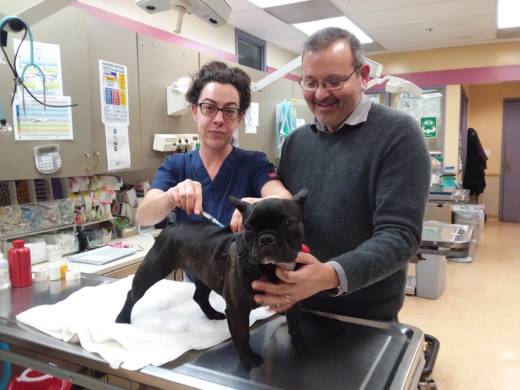San Franciscan veterinarians are seeing a spike in pet owners who are vaccinating their dogs against the canine flu.
At least 14 cases of the highly contagious illness have been confirmed in the region so far, including the city's first on Jan. 19.
All of those dogs are thought to have been infected by the flu in the South Bay.
Village Square Veterinarian Hospital in Portola Valley and Woodside Veterinarian Clinic in Redwood City emailed their clients to suggest vaccinating any dog that typically receives "kennel cough" immunizations or spend a lot of time around other dogs -- in day care, walking groups or parks.
Both clinics write: "The vaccine is given twice (1st dose + booster after 2 to 4 weeks). After that, the vaccine is annual. The CIV vaccine we carry has efficacy against both the H3N2 and H3N8 strains. The earliest age the vaccine can be given is 7 weeks. The dogs are not considered to have full immunity until 2 weeks after the booster."
